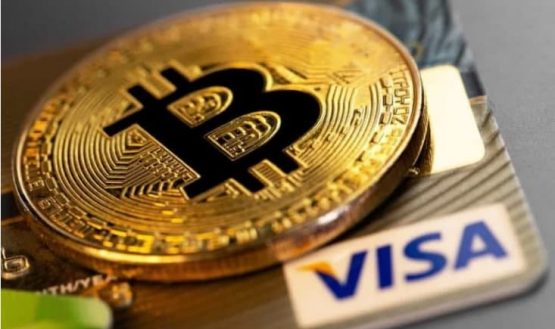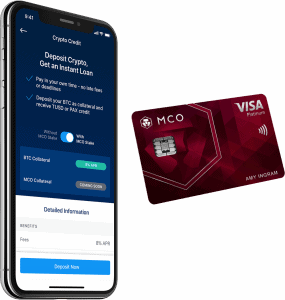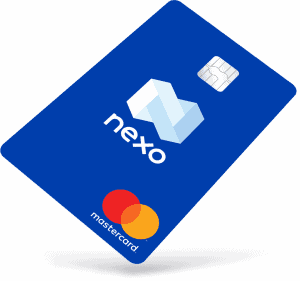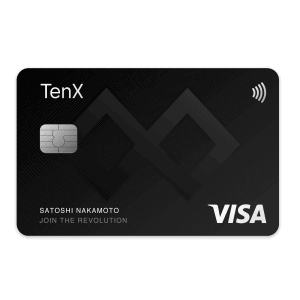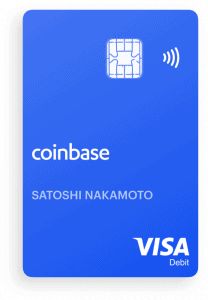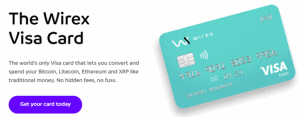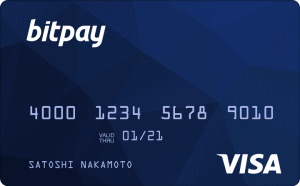Cryptocurrencies are a store of value and a form of digital asset and a store of value that can be sent to another user anywhere in the world within a matter of minutes.
Bitcoin is a primary example of a cryptocurrency that can be sent, received, and settled within a short time. However, cryptocurrencies are usually transacted using mobile or internet technologies – what if you’re looking to use the cryptocurrency physically, say like trying to buy Bitcoin with a debit card?
Luckily, you can use your cryptocurrency via Cryptocurrency Debit and Credit Cards. There are many crypto-card providers on the market – some better than others, so it’s important to research their benefits and drawbacks. You’ll also need to own crypto first – we recommend Binance as an easy-to-use exchange.
Best Crypto Credit & Debit Cards for December 2024
Now that we’ve just had a refresher on what Crypto credit cards are and how they work, let’s assess which Bitcoin credit cards we believe are the best in the industry at this moment. This is based on extensive due diligence, comparisons to other industry competitors, and our own experiences with the providers.
1. OKX – World’s Number 3 Cryptocurrency Exchange With Multiple Trading Features
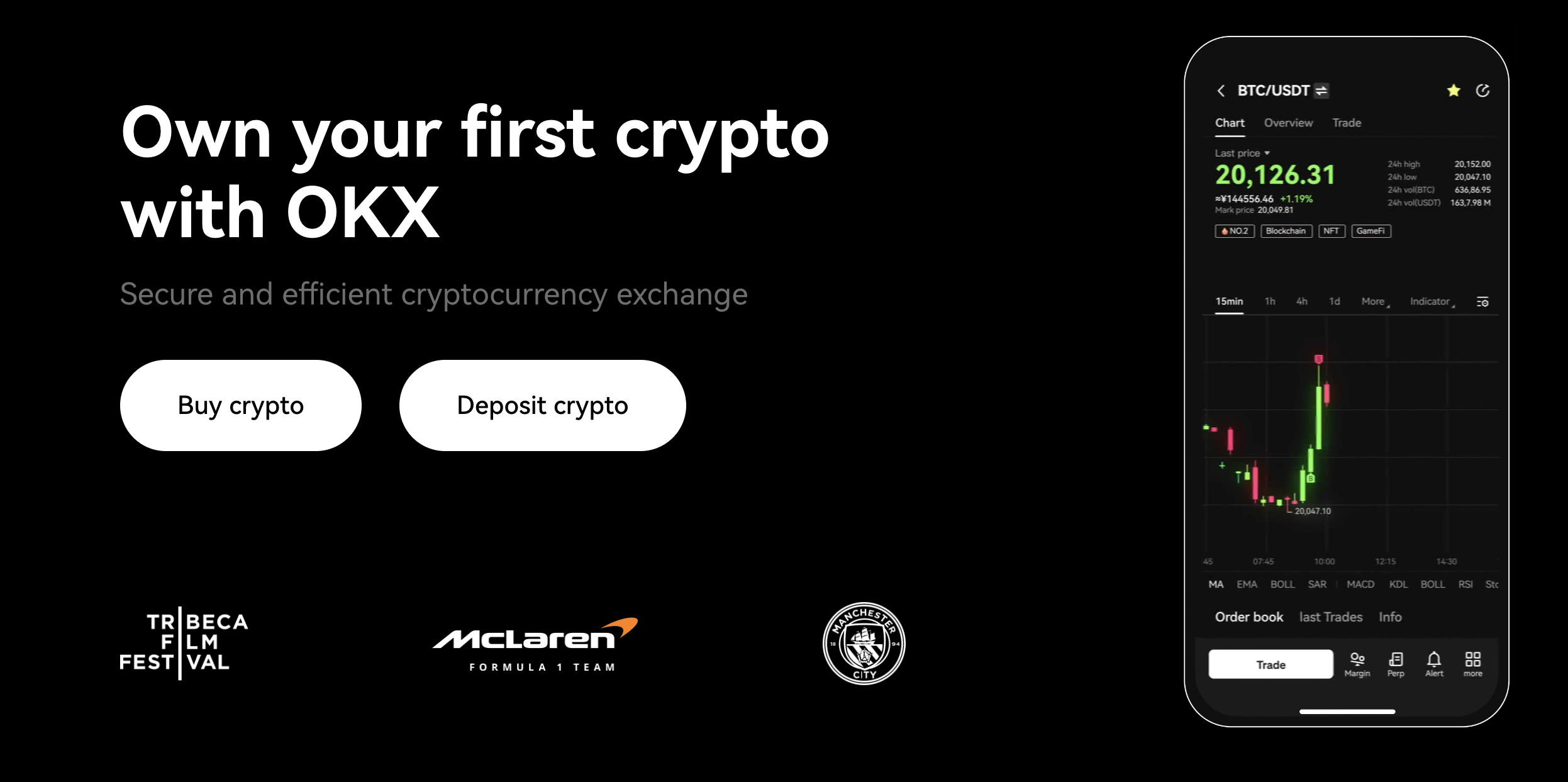
Our second pick may sound a bit different, considering OKX has not introduced a credit or debit card yet. However, due to the platform’s propensity to continuously innovate and bring new utilities, credit or debit cards might be introduced soon. Furthermore, recent developments by OKX hint that more utilities are coming to make people more receptive toward cryptocurrencies.
One of those developments is OKX’s openness to accept debit and credit card payments. OKX now accepts these fiat methods – allowing users to buy cryptocurrencies easily.
Fees
Since there is no credit or debit card, we can’t comment on the fees. However, if it is introduced, OKX will likely not include any fees for these facilities. And considering how much OKX has grown in the past year alone, we expect there to be exclusive facilities for high-tier members.
Pros:
Cons:
- Is yet to introduce a card
Your capital is at risk.
2. Bybit Card – Spend Crypto Worldwide Without Requiring an Additional Account
Bybit card was just recently introduced and has hit the ground running with its lucrative features. Those include an event-based reward system where users can double their crypto rewards. The Bybit card can be used to pay at multiple crypto-accepting outlets worldwide – and that too without any additional account requirement.
The card doesn’t impose any staking requirements – allowing users to claim rewards despite the tier of card they possess. Users can accumulate points by using the card for their expenditures. And the more points they accumulate, the closer they get to accessing exclusive loyalty rewards.
Fees
Bybit card doesn’t require any hidden or annual fees. It is a Mastercard debit card that can be managed using a flexible card management system that Bybit has implemented on the user’s dashboard.
Pros:
Cons:
- Higher-tier rewards are tied to loyalty levels
Your capital is at risk.
3. Crypto.com (Monaco) – Best Crypto Credit Card for Cashback Offers
Monaco, otherwise known as Crypto.com, has offered a crypto credit card that runs on an LTV-based model and enjoys some unique benefits while also enabling its own proprietary cryptocurrency ‘Monaco’ internally to facilitate the credit card.
Monaco credit cards are given a specific credit limit based upon the amount of cryptocurrency you deposit. However, Monaco is partnered with various outlets where you can use the card, including cashback offers for staking Monaco tokens.
The credit cards don’t require any type of credit checks, however, do require identity verification, unlike Nexo.
Fees
Crypto.com’s credit cards provide the leading industry card fees, besides Nexo, at approximately 3.5%. In addition, however, cashback opportunities on the card can cancel this fee out if looked at it from a long-term point of view.
Pros:
- Unique benefits and integration of their Monaco (MCO) cryptocurrency, cashback offer for multiple major retail outlets.
- Exclusive retail partnerships for cashback offers
- No minimum monthly payments
- Cashback offers, 5% starting for MCO cards
Cons:
- Flat card fees
- LTV ratios are very uncompetitive
- Limited amount of support and available collateral options
4. Nexo – Popular Bitcoin Credit Card
Nexo is our ultimate favorite and premier selection as far as Bitcoin and cryptocurrency credit cards go for a variety of reasons; let’s review Nexo as a whole. Nexo is primarily a loan issuance company. That means that the company provides what is called LTV-based Cryptocurrency loans. Users deposit a certain amount of cryptocurrency and are rewarded a credit line in fiat currency within mere minutes of signing up. That credit line is then directly linked to a ‘Nexo Card’. Nexo Cards have no monthly fees, no monthly minimums, and are extremely flexible and easy to use.
Fees
Nexo Cards incur no additional fees for usage; the only fees are the interest on the credit line you are granted, for which fees are imposed strictly on the credit line itself, meaning fees are minuscule compared to legacy credit cards.
Pros:
Cons:
- You do have to deposit usually double the amount of cryptocurrency relative to the value of the credit line you want to take.
- It is a MasterCard provider, which has a bit less number of supported outlets than VISA.
5. TenX Card – Best Crypto Credit and Debit Card Mix
TenX is fairly well known for its large ICO, where it was able to raise $80M in cryptocurrency for a range of different products. Fast forward a year and a half, and TenX is running one of the more well known and reliable credit cards in the industry.
TenX cards can be configured either as credit cards or debit cards. In the case of credit cards, an LTV-based model is purported. With a TenX credit card, you have additionally incurred a flat fee monthly based on how much you use the card. The more you use it, the less the flat fee, which starts at $15 / month. The card is very reputable and has maintained clear registration and compliance with legal as of recently.
Fees
TenX cards maintain a flat fee structure and then depending on the type of product that you’re engaging in, will incur an additional interest charge or APR. In the case of a cryptocurrency/Bitcoin credit card, TenX charges various interest rates in addition to a flat fee.
Pros:
- Hybrid option between credit or debit card
- A reputable company that has completed an $80M ICO, meaning they have a lot of funds in reserve if they’ve kept their promise.
- Multi-asset support, hold and spend a variety of different cryptocurrencies using either a credit or debit card on the platform.
- Access your funds via an ATM, or go directly to a number of VISA supported outlets and use the card there.
Cons:
- Not available in the U.S. or U.K.
- Incurs fees that are relatively hefty in comparison to other providers, additionally incurs annual fees if you don’t hit a spending minimum.
6. Coinbase Card – Overall Best Crypto Debit
Coinbase is widely known as one of, if not the staple cryptocurrency provider for retail users. The firm has been at the forefront of pushing for retail and merchant adoption Bitcoin and general cryptocurrency for multiple years now and has additionally registered and maintained compliance in a very clean way amongst quivering legal outlooks on cryptocurrency and what not. Their most recent take on improving the accessibility and retail usability of cryptocurrency is the Coinbase Card, a cryptocurrency debit card.
The card, which is directly linked to your Coinbase account maintains all of the security features, easy interface, and supported assets of the main Coinbase platform, however, just on a debit card linked to a unique debit card. If you don’t know how to use Coinbase or need help setting an account up, check out our Coinbase guide here.
Fees
Coinbase Card maintains some of the most competitive fees in the industry, our reasoning for ranking it so highly. Coinbase imposes just a .20% fee on any domestic transactions and a 3% fee on transactions completed internationally.
Pros:
- Linked directly to your Coinbase Account, gives you all the accessibility, features, and options that a Coinbase Account gives you, only an app and debit card.
- Coinbase is registered, regulated, and overseen by very large financial institutions.
- The Coinbase Card app has a payment tracker and ledger where you can organize any and all debit card transactions.
- Access your funds via an ATM, or use crypto directly at any supported VISA outlet.
Cons:
- Coinbase verification is required
- Since it’s relatively new, some users have reported errors and bugs
7. Wirex VISA Card – Best Bitcoin Debit Card for Low Fees
Wirex is one of the longest-lasting crypto and Bitcoin debit cards. Because of its track record, ability to maintain low relative fees, and multi-asset support, it is one of the best debit card options.
Wirex can be loaded with a variety of cryptocurrencies, including XRP, Ethereum, Bitcoin, and more.
Fees
Wirex imposes a singular $3.5 card issuance fee and a flat monthly fee of $1.5 per month, making it one of, if not the most cost-efficient cards.
Pros:
- Very extensive track record
- Amongst the lowest fees in the industry
- Multi-asset support
- Access your funds via an ATM, or use crypto directly at any supported VISA outlet.
Cons:
- Only available to investors in Europe
- Although very low fees, withdrawal charges, in the case of cash withdrawal, are imposed which can add up.
8. BitPay Card – Excellent Crypto Debit Card with Low Domestic Fees
BitPay is a cryptocurrency payment processor that has been in the industry for quite some time now. Since starting with just cryptocurrency purchase options, BitPay now offers its own inclusive card. The BitPay card is accepted worldwide, maintains fairly low fees, and comes with an exclusive BitPay app to keep track of funds and spending.
BitPay spending limits are very high and maintain custom institutional accounts if you reach out privately, which is an excellent opportunity.
Fees
BitPay incurs a standard 3% fee on international transactions and a flat 1% fee on all domestic transactions.
Pros:
- Reputable company, long track record
- Lowest domestic fees in the industry
- Deposit multiple assets and monitor them inclusively on BitPay app.
- Sleek design and unique card design
Cons:
- Withdrawal fees are comparatively high
- Lengthy verification is required, and the card is only available to U.S. residents.
How To Choose The Right Crypto Credit and Debit Card For You
Choosing the best crypto credit and debit card isn’t always as easy as it seems. However, it is important to pick the right crypto card for your needs.
Here are a few things you should consider when deciding on which debit and credit card to use.
Fees Structure
The first step is to find out how much monthly or annual fees you will need to pay. Also, you will need to research the conversion fees you will be charged if you are always on the move. Some crypto card issuers like Nexo do not charge any monthly or annual fee, but it charges 1.49% for European Union (EU) countries and 3.49% for non-EU countries for each card purchase. On the other hand, Crypto.com and Uphold fees are low, Coinbase charges medium fees, while Bitpay fees are high.
Reward Structure
Many crypto debit/credit card issuers offer rewards and other incentives to attract customers to choose their cards over that of competitors. While this is good, you must be certain that it suits your lifestyle and not pay more than you normally would. Coinbase offers no reward; Nexo offers 2% cashback on all purchases; Crypto.com offers 8% for Obsidian cardholders with 100% free Spotify and Netflix inclusive, while Uphold offers 2% crypto and 1% cashback.
Withdrawals
While some debit/credit cards offer free withdrawals, some charge a small percentage whenever any withdrawal is processed. Crypto.com offers free Automated Teller Machine (ATM) withdrawal per month, while Nexo does not support withdrawal to your bank account.
Supported Cryptos
The number of supported cryptocurrencies should also find a place in your list. Some merchants may not support a particular crypto asset; this implies that a crypto credit card large crypto support holds more spending flexibility for you.
Crypto.com supports BTC, ADA, ETH, DOGE, and 13 others, while Nexo supports 18 cryptocurrencies in total, giving you more payment flexibility and purchasing power.
Minimum Stake
How much you will be charged as a minimum stake is also something that you need to consider before choosing any credit and debit card. Crypto.com offers a minimum Crypto.com coin (CRO) stake of $40,000 for Obsidian cardholders, and Nexo minimum deposit is $50.
Currency Conversion for Traveling
You need to know if you will be charged any fee when converting to fiat for traveling purposes. Some card issuers like Bitpay does not charge any conversion fee.
Option to Link Accounts
There is also a need for you to confirm you can directly link your account to your crypto debit/credit card for seamless transaction on the go. You can only add a traditional bank account with a banking license to Nexo, while for Crypto.com you can link any bank account within the United States (US).
Security
The safety of your funds when making any transaction should be a concern to you. Some card service providers offer encryption and 24/7 fraud monitoring mechanisms that ensure the safety of your funds and transactions. The Nexo crypto card is the best when it comes to the security of your funds.
What is a Bitcoin Credit and Debit Card?
Bitcoin and cryptocurrency are steadily entering the retail payments industry and serving as a form of near instant, immutable payment type.
Each day, more and more developments are being made that allows for cryptocurrency and Bitcoin to be accepted in a facilitated way at local retailers, online, and so on; now what about if you could put your Bitcoin or cryptocurrency on a debit/credit card and use it just as normally as you would any other credit or debit card?
Well, you can, and it’s possible today. Let’s review both the two types of Bitcoin/cryptocurrency cards as they are fairly different from one another: debit and credit.
How does a Bitcoin or Crypto Debit Card Work?
Just like a normal debit card works, you are given a physical card with a unique code, identification number and expiration date that can be used as a direct link to any facilitated bank account that you might have.
When you have a traditional debit card with a bank, the debit card is a direct link to your bank account; in other words, anytime you use the debit card, money is deducted from your bank account directly, or in other words, money that you actually have is deducted from your account.

Once the debit card arrives, you can then use that debit card at any supported outlets (Traditionally all VISA carriers). Every time you use the card, the fiat value will be deducted and liquidated from your account at the time of the purchase. It’s a convenient way for you to use your cryptocurrency at any VISA supported area.
How Does a Crypto Credit Card Work?
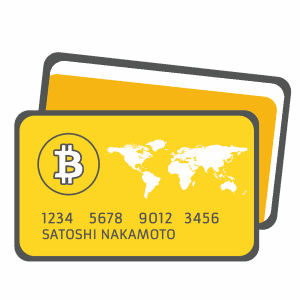
In exchange for lending you the money, the bank will also incur what is called an interest rate, which is a fee that is added to your credit balance. The bottom line is that a credit card is essentially money that a bank is lending you that you promise to pay back – how you pay back is dependent on minimum payments, interest rates and more.
Now, cryptocurrency and Bitcoin credit cards are fairly similar to traditional credit cards. They are still essentially funds that are being loaned to you, however in a different manner.
In terms of a cryptocurrency or Bitcoin credit cards, you are given credit in the form of fiat value based upon how much worth in cryptocurrency you put up for ‘collateral’. For more info, check out our Bitcoin loans guide that overviews the loaning process.
The Advantages of a Bitcoin Credit Card
A Bitcoin credit card has a few positive factors that can be of great use to multiple types of users. For starters:
- Bitcoin credit cards allow you to receive loans without having any minimum monthly payments, large APR fees, or the like.
- Bitcoin and cryptocurrency credit cards can serve as additional hedges for your investments in cryptocurrency.
- While most credit cards require a credit score and credit check, Bitcoin credit cards don’t.
The Future of Bitcoin and Crypto Debit and Credit Cards
While we can’t be sure that cryptocurrencies will be used actively by every single consumer in the world within the next few years, signs are pointing towards these debit and credit cards being more accessible in our everyday life.
Conclusion
Cryptocurrencies such as Bitcoin are making progress in their underlying technology each and every day; things like cryptocurrency credit and debit cards are becoming more and more efficient by the day.
In any case, ensure you’re checking up on InsideBitcoins daily for the latest and most useful information and developments in the industry.
FAQs
Can I get a Bitcoin credit or debit card if I have bad credit?
Yes! You can get a Bitcoin credit card or debit card with bad credit, in fact, in the case of a Bitcoin credit card, since the entirety of the loan is given based on the collateral you put up, there are no credit checks whatsoever. As long as you can buy Bitcoin with a credit card, you'll be set to get a crypto credit or debit card.
Are there hidden fees associated with Bitcoin debit/credit cards?
For the cards we reviewed above, we ensured that no hidden fees were imposed; it's always good to do your own due diligence as well, and ensure thorough research if selecting a card that is lesser known.
What's the most important quality of a Bitcoin credit and debit card?
In the case of a Bitcoin credit card, the most important quality to adhere to is the loan terms, as unfavorable or misconceived terms can lead to a large loss of funds.For Bitcoin debit cards, the most important quality is most likely accessibility and regulation.
Are Bitcoin debit/credit cards legal?
In major jurisdictions where cryptocurrency is legal, cryptocurrency debit and credit cards are legal. However, some providers may be restricted in where they can provide the cards, so keep this in mind.
